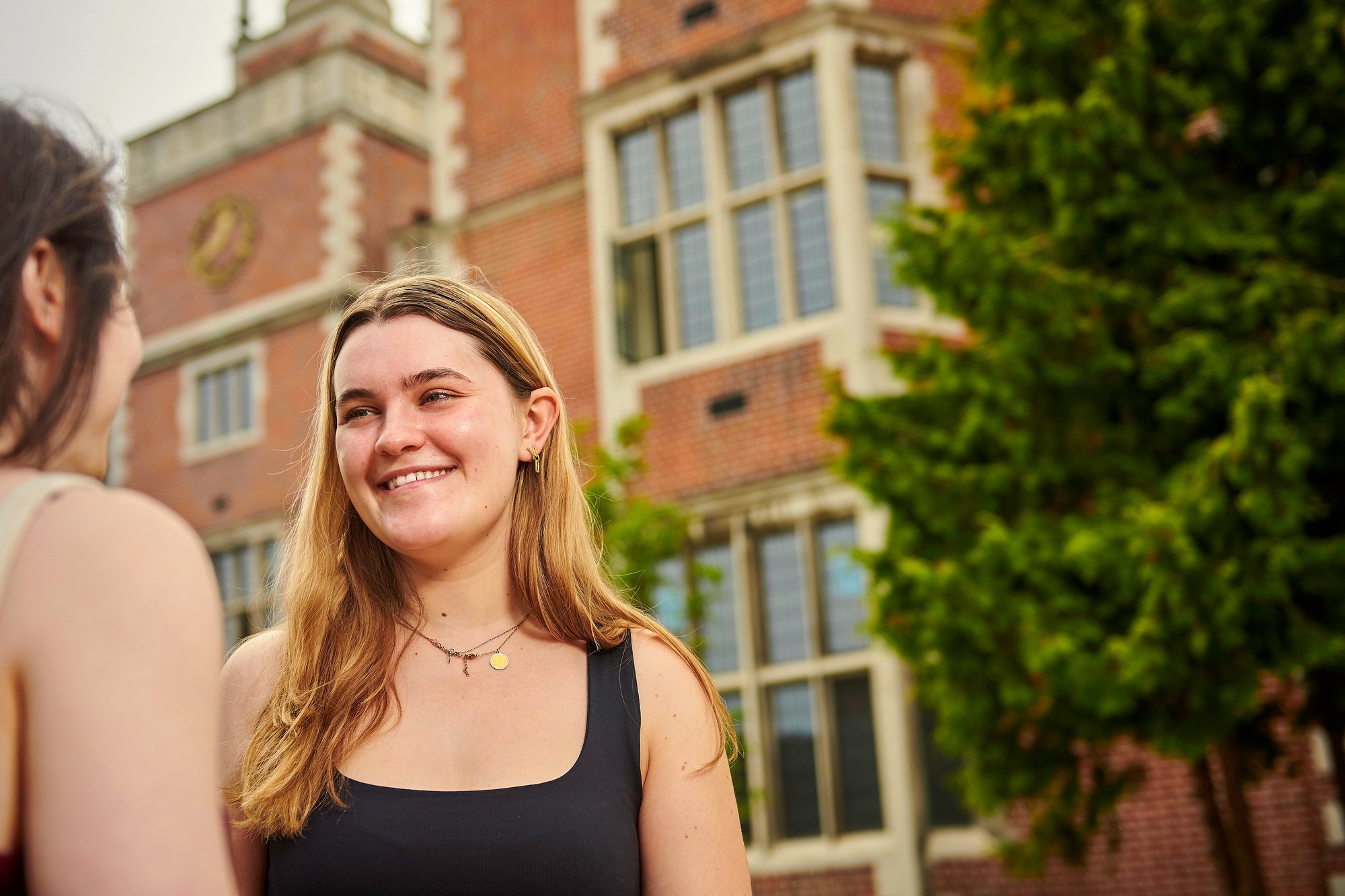Applying through UCAS – a guide for parents of international students
28 February 2025 | By: Judith Charlton | 4 min read.jpg)
Applying to university is an exciting time for your child, especially if they have decided they want to study at a university in the UK.
As a parent, you want to support them. Key to this is understanding UCAS for international students, how the UK university application process works, and what your child needs to do to secure their place at university.
(Although we use the terms child/parent throughout this blog for simplicity, it is intended for anyone fulfilling a parenting role.)
Contents:
What is UCAS?
Applications to UK universities are made online through the Universities and Colleges Admissions Service (UCAS).
UCAS provides information, advice and admissions services to students applying for undergraduate courses in the UK.
Applying through UCAS
Your child can apply independently, or get help with their university application from a local adviser or education agent. This could be a member of staff at their school or college, an advisory service or an agency that provides information about studying in the UK.
We work with a number of agents in countries around the world who support students applying to us. You can find out more here.
When your child applies, they'll need to register with UCAS online. They'll be guided to create their own UCAS Hub - their personal online space where they'll prepare and submit their application. The Hub is also where they'll track their university application and any offers they receive.
To register, they'll fill in a short form, enter their name, email address and create a password. They must keep this password safe as they'll need it every time they log in to their Hub.
They must apply in English, but they can use some European characters in their personal details, personal statement, employment and referee details (more about these sections later).
After registering they'll be taken to their Hub dashboard where they'll be able to select the ‘Your Application’ tile to start their application.

UCAS Hub
As part of their application via their UCAS Hub, your child will need to supply some basic information about themselves, including:
- contact details
- education history
- nationality
- details of any part-time paid jobs
- English language proficiency and any tests they have taken, such as IELTS and TOEFL
- how they expect to pay for their studies
They’ll also have to complete a number of key sections:
1. Adding course choices
Your child will be able to add up to five university course choices to their application. They don’t have to fill in all five options, but the more courses they apply to, the more chances they have of securing an offer.
They can only apply to a maximum of four courses in:
- medicine
- dentistry
- veterinary medicine
- veterinary science
However, they can use their last choice to apply for a completely different subject.
They can only apply to either the University of Oxford OR the University of Cambridge.
Before adding their choices, your child will need to check the course entrance requirements – these are the grades and conditions they must meet to be accepted on to a degree programme. UK universities set their own entrance requirements, so these will vary depending on the subject and the institution.
At Newcastle, we accept a broad range of EU and international qualifications. Your child can find the relevant entrance requirements for the qualifications they are studying on our course pages.
2. Writing a personal statement
As part of their UCAS application, your child will need to submit a personal statement. It's an important part of their application and could be the very thing that earns them a place to study their dream subject at their favourite university.
Although they might be applying to multiple universities, they only need to write one personal statement. However, it needs to reflect their suitability for all the courses they are applying for, so it can be tough to write,
If they want to go to university this year, they can download our guide to writing a standout personal statement for 2025 entry.
For 2026 entry, UCAS are changing the way personal statements are structured. You can find out more here.

3. Attaching a reference
Your child will need to attach a reference to their application. This is a written recommendation from a teacher, adviser or professional who knows them academically and can talk about their work at school and their suitability for higher education.
If they're applying independently, they'll need to supply their referee’s details, including an email address, so that UCAS can contact them.
Or they may be given a ‘buzzword’ by their teachers to add to their application. This links their application to their school or college, allowing their teachers to attach their references.
4. Application fees
The application fee for 2025 entry is £28.50 for up to five choices. They will be guided as to how they can pay this fee online.
5. Submit before the deadline
Although university courses in the UK usually start in September, the deadline to apply can be almost a year in advance.
If your child is applying to start their studies in September 2025, they should submit their application to UCAS by:
- 15 October 2024 – for Oxford and Cambridge applications and most courses in medicine, veterinary medicine/science, and dentistry
- 29 January 2025 – for the majority of undergraduate courses
Universities may continue to accept applications from international students after the January deadline. If your child applies via UCAS after 30 June 2025, they'll be automatically entered into Clearing (more about this below).

University offers
Your child will be able to check the progress of their application at any time by signing in to their UCAS Hub.
They'll be able to see if they have been made any offers and, if so, whether they're:
- Unconditional: they're guaranteed a place regardless of their exam results
- Conditional: they need to meet certain entrance requirements
- Unsuccessful: they haven’t been made an offer
Replying to offers
Once your child has received decisions on all their university choices, it's time to reply to their offers.
They'll need to sign in to their UCAS Hub and choose:
- a ‘firm’ choice – this will be their first choice university
- if their firm choice is conditional and they hold other offers, they can choose an ‘insurance’ or back-up choice
Your child can only make one firm choice and one insurance choice. They must decline all other offers.

No offers?
If your child used all five of their course choices in their application, but hasn’t received any offers – or none they want to accept – they can still find available places through UCAS Extra, or UCAS Clearing.
UCAS Extra
For 2025 entry, this service opens on 26 February 2025 and closes on 4 July 2025, the day before Clearing starts.
Using UCAS Extra your child can add new course choices to their application. There's no limit to the number of choices they can add, but they can only add them one at a time. They must wait for each university to reach a decision before they add another.
UCAS Clearing
This process matches students with vacancies on university degree programmes. Clearing will open on 5 July 2025 and run until mid-October.
Your child is eligible to use Clearing if they:
- are applying after 30 June
- haven’t received any university offers, or none they want to accept
- don’t meet the conditions of their offer
- decline their firm place using the ‘decline my place’ function
They'll be able to contact universities direct via the Clearing hotlines advertised on their websites to discuss course vacancies.
Find out more:
- Read the top 10 reasons your child should study in the UK
- Explore Newcastle University - is it right for your child?
- Learn about the support we've put in place for our international students

We've been voted top in the UK for student life in the WhatUni Student Choice Awards 2025 - trusted recognition from real students.
